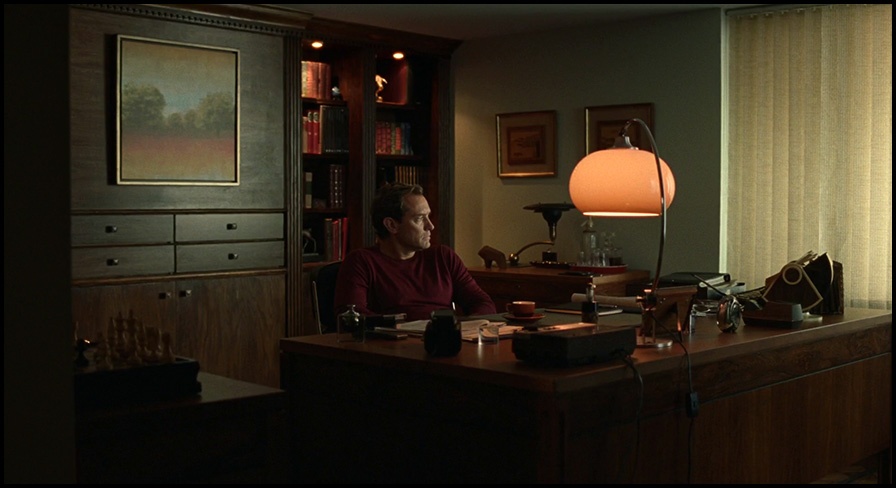
 spoilers start
spoilers startimmediately Sean Durkin, 2020
#10, 2020 Skandies
The gimmick to this one is that it shows every sign of fitting in seamlessly on a shelf of VHS horror movies at a 1980s video store, as a troubled family moves into a cavernous house where the frazzled mom starts to find doors she locked now standing wide open, and the pets are having problems, and we know that once we get into the second half the ghosties will have things flying off the shelves as the kids run around screaming. Except that doesn’t happen. The Nest starts out as a slice of life, and remains one. Because, as Rorschach might have observed, it is not ghosties that make our families fall apart. It’s us. Only us.
But I am not a movie buff and I don’t really care overmuch about playing games with film genres. I am a history buff, though, so the fact that this movie is set in the mid‑’80s was interesting to me. Part of the reason The Nest is set back then likely has to do with when the type of movie it’s feigning to be was popular. Part of it is that a lot of its plot points wouldn’t work in a world with cell phones. But much of it has to do with the fact that in the 1980s, the prime minister of the United Kingdom was Margaret Thatcher. See, the idea here is that the dad is a Brit who grew up poor, was determined to strike it rich in big finance, decided that he’d never be able to pull that off in the ossified U.K. of the 1970s, and so tried his fortune in America. There he met a young single mom, married her, had a kid of his own with her, and became a millionaire along the way. But that’s not enough—all that merely one million dollars gets you in the mid‑’80s is a pleasant upper-middle-class home in Westchester. He wants serious fuck-you money, and with Thatcher busy privatizing and deregulating Britain, he thinks London is the place to get it. He moves his family across the Atlantic, buys an immense mansion out in the countryside, buys his wife a fur coat and a horse, and enrolls his son at a pricey “public school”. (The stepdaughter gets a boom box and some cassettes.) One of the first big surprises is that it turns out that he can’t afford any of this—he’s bought it all on the assumption that by the time the credit card bills come due, he’ll have squared away enough of a cut from brokering a corporate merger that it won’t be a problem. “Everything will be fine within ten days,” he snarls when his wife finds out. But in short order, his checks are bouncing and he’s begging her for a few hundred pounds because there’s not a single penny in the bank. “Ten days came and went a few times over, didn’t it?” she observes.
This was all very familiar on multiple levels. As adults, my brother and I both grew accustomed to being hit up for money and wondering, wait, isn’t your income in the mid six figures? Where the hell is it all going that you’re coming to me, making a fraction of that, and begging for a handout? And the ten days… yeah, it’s always going to be paid back right away, and then the days become months, and the months become years… but let’s put all that aside and turn to the mise-en-scène. I was around in the ’80s, and I spent many an hour in offices that looked pretty much exactly like this:




